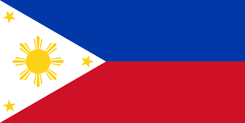This incident caught international attention, portraying Bello, considered a national 'hero', in a dramatic light. His arrest on August 8 and subsequent bail release on August 11 drew public and international support, including from at least 50 members of the European Parliament and the ASEAN Parliamentarians for Human Rights. Bello intentionally asked the police to handcuff him to spark public backlash against the case, even though they were initially reluctant due to his prominence.
The case, filed in Davao—Duterte's stronghold—required Bello to travel for hearings, adding to his challenges. He attended court twice in 2023 and is expected to do so four times in 2024. Anticipating that the case might reach the Supreme Court, Bello estimated the cost at about $40,000 to $50,000 USD. Given his high profile, he plans to crowdfund these expenses and is prepared to fight the case to the end.
The major impacts on Bello are financial and procedural. The potential costs and the need to travel long distances for court hearings exemplify how cyber libel laws can be used as procedural harassment, leading to financial strain and psychological stress for those targeted, such as journalists and activists, pushing them towards self-censorship.
However, Walden Bello's legal struggle showcases a pushback against the abuse of cyber libel law in the Philippines. With strong support from his legal team, Bello is committed to using his case to expose how the cyber libel law has been weaponized. His strategy includes taking his case to the Supreme Court, where he aims to challenge the 2012 ruling that declared the cyber libel law constitutional. Simultaneously, Bello is working with various civil society groups to advocate for the decriminalization of the law, striving to effect change both in the courts and in public opinion.

